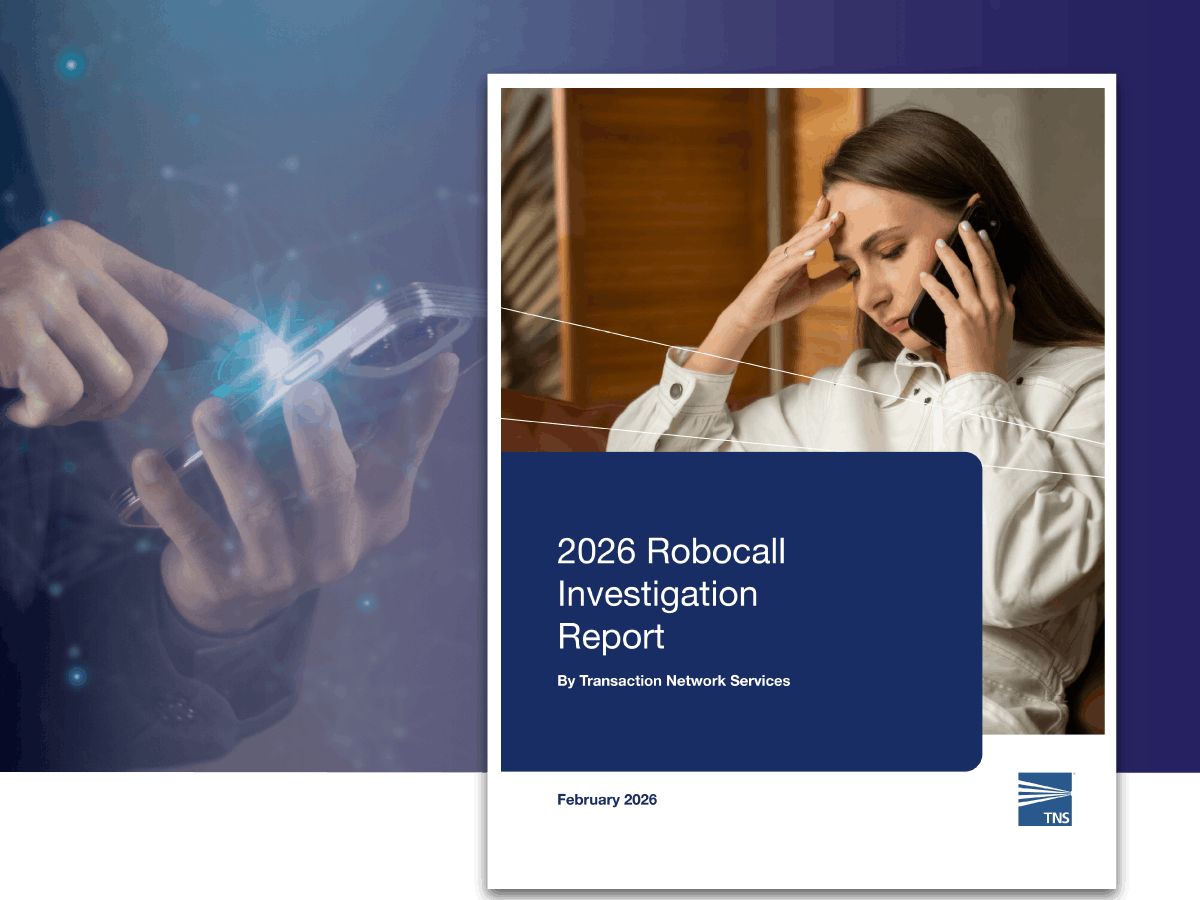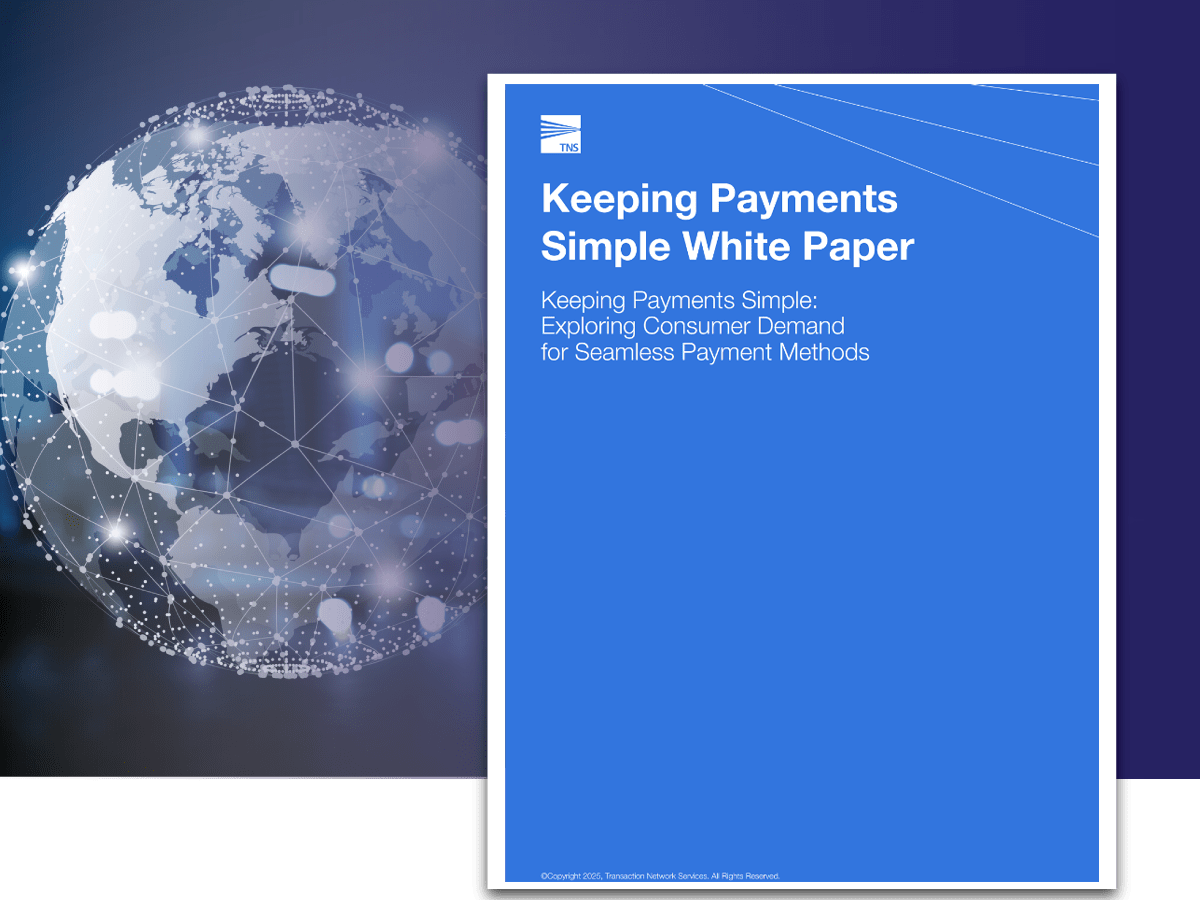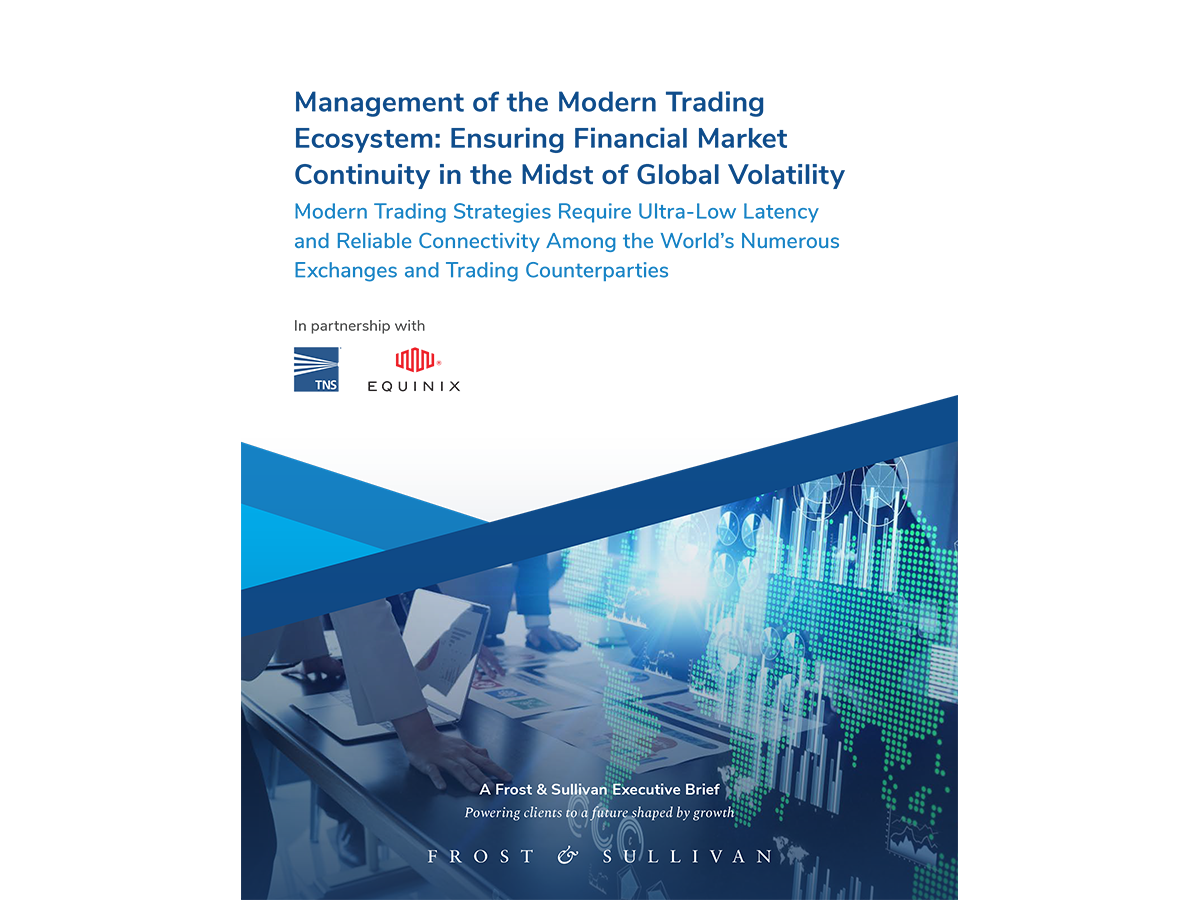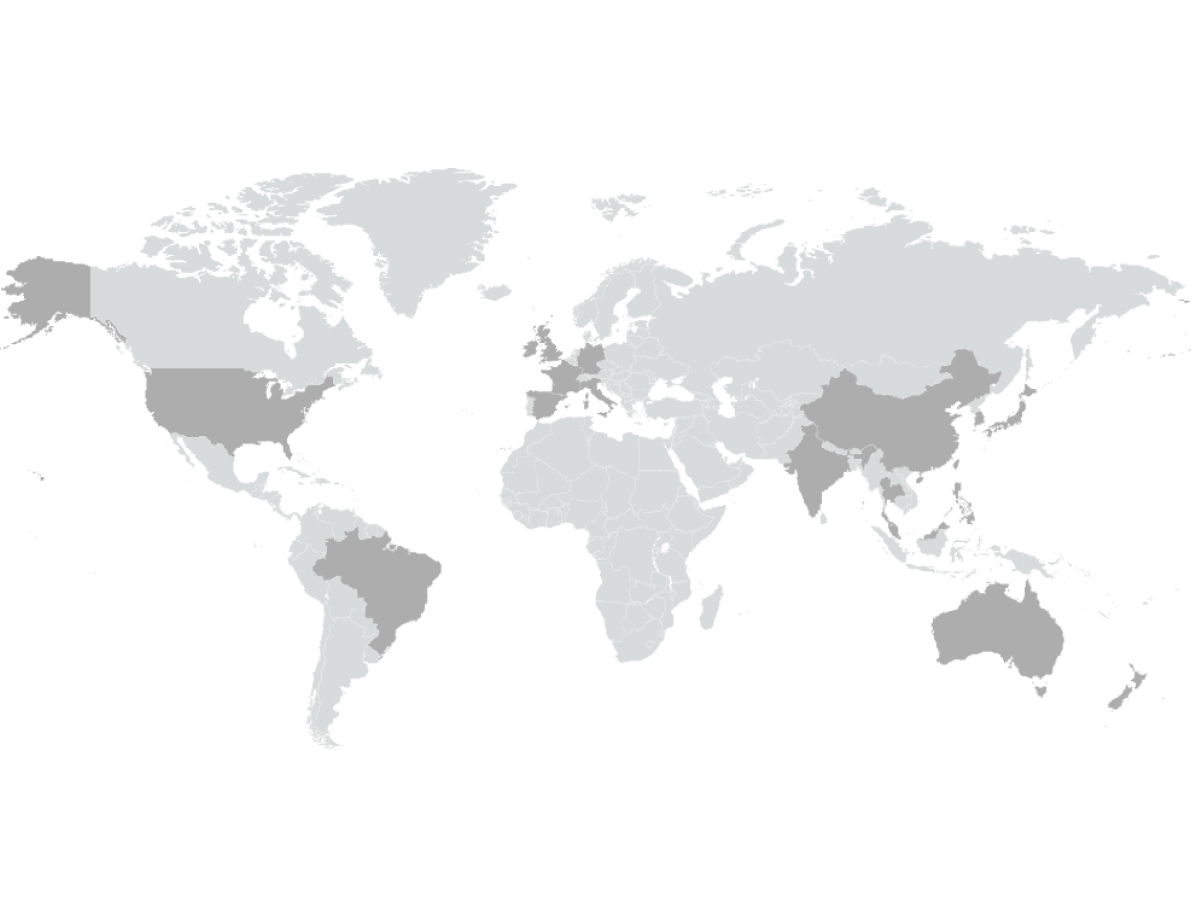Transaction Network Services (TNS), a leading provider of mission-critical infrastructure connectivity and market data feed services for the Financial Markets community, has released the findings of a recent Frost & Sullivan Executive Brief, Management of the Modern Trading Ecosystem: Ensuring Financial Markets Continuity in the Midst of Global Volatility.
Commissioned by TNS and its partner Equinix, the brief highlights future trends and how access to ultra-low latency and reliable connectivity to global exchanges and trading counterparties impacts trading success.
Post pandemic global trade is at a crossroad and this analysis considers technology, data proliferation and utilization, geopolitical issues and climate change initiatives that are reshaping the way financial services companies are trading. The advantage of an MSP is bringing together numerous community endpoints to address the specific needs of financial market participants and easing their burden with a wide range of solutions including connectivity, colocation services, cloud, market data and VPN.
“Trading organizations looking to co-locate or expand into new data centers need to seriously consider if they have the skills, understanding, resources and bandwidth themselves,” said Jeff Mezger, TNS’ Vice President of Product Management for Financial Markets. “This analysis provides a comprehensive case for the benefits of outsourcing operations to a managed hosting, colocation and connectivity service provider.”
According to Frost & Sullivan, there are intersecting reasons why the current trading infrastructure and ecosystem are in a constant state of flux, including:
- Global exchanges increase their points of connectivity (e.g., new participants, counterparties, locations) regularly and this increases market data costs
- Market data volumes are growing, requiring significantly more bandwidth
- Exchanges routinely perform migrations and upgrades which require customers to make infrastructure changes
- New network routes, new technologies and new exchange options are emerging, and keeping up with the changes presents a substantial burden
- Expanding operations geographically requires legwork to identify new vendors and partners, increasing time-to-market and support costs
- Connecting into a vast ecosystem of new trading participants can involve hundreds of individual network connections
Clare Walker, Principal Analyst at Frost & Sullivan, adds: “Having global reach with local support can create faster time-to-market for trading firms adding new exchanges and points of connectivity. However, getting local expertise in exchange nuances can be difficult. By partnering with companies that have existing exchange relationships, firms can see less downtime and fewer lost trading opportunities.”
Eleni Coldrey, Business Development Director at Equinix, said: “Secure, ultra-low latency connections are essential for trading, especially in volatile markets where risk management is heightened. Equinix has a long history of supporting trading communities within key financial centers around the globe, leveraging our highly reliable interconnection services to support ecosystems of brokers, trading counterparties, data vendors and more. As the use of real-time trading and monitoring services continues to grow apace, ecosystems built upon low-latency connectivity and interoperability between market participants are only going to become more important.”
Visit the TNS website to download Management of the Modern Trading Ecosystem: Ensuring Financial Markets Continuity in the Midst of Global Volatility. Registration is now open for a webinar to support this report on October 12, 2022, with TNS’ Jeff Mezger and Equinix’s Eleni Coldrey. Please click here to register.
TNS brings together over 2,800 financial community endpoints to address the needs of financial market participants worldwide. Traders that use the company’s diverse range of solutions, including its ultra-low latency Layer 1, benefit from TNS’ global point-of-presence footprint and extensive existing on-net connections, which include uninterrupted access to more than 60 exchanges with local, physical support around the globe.





